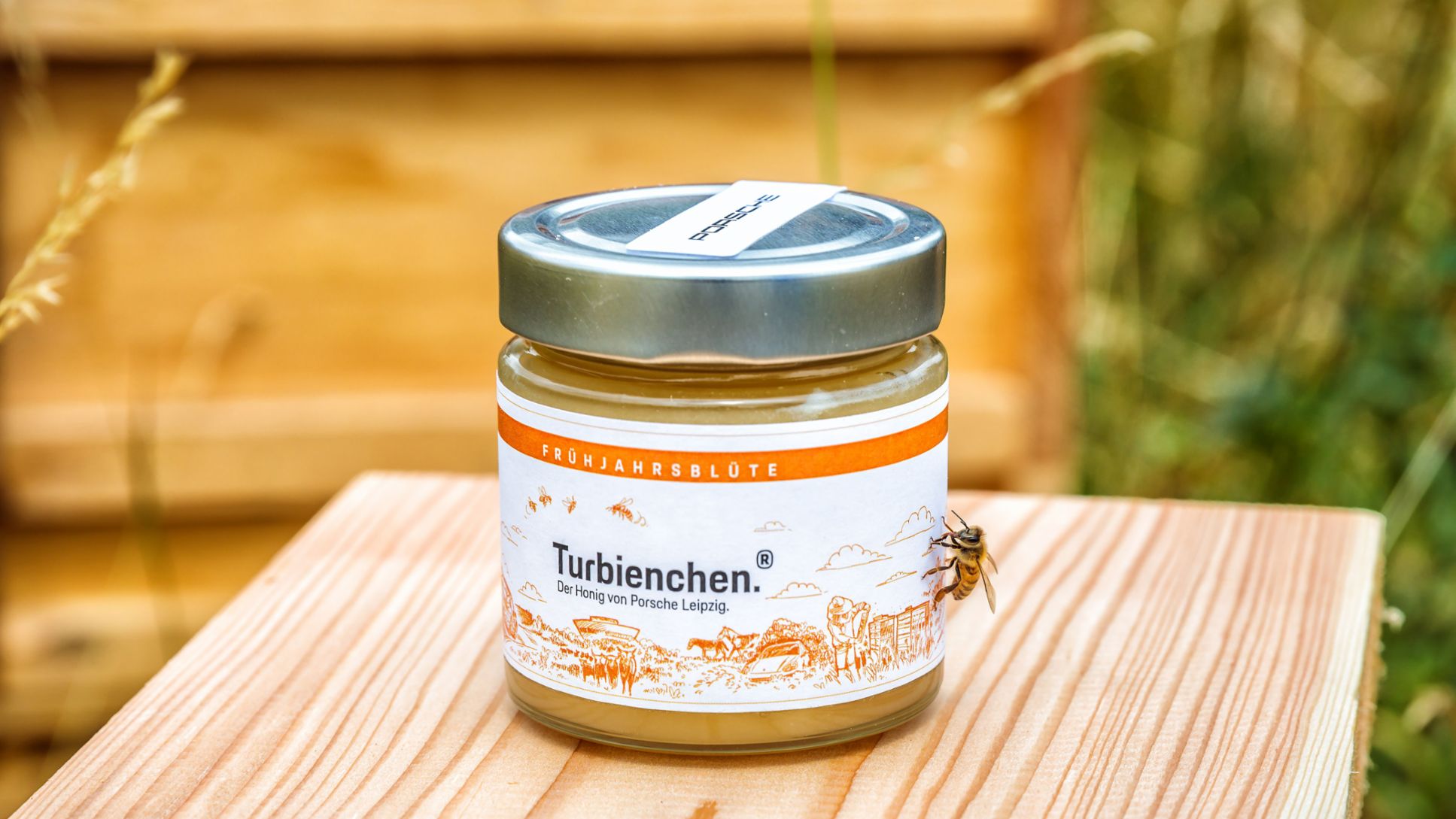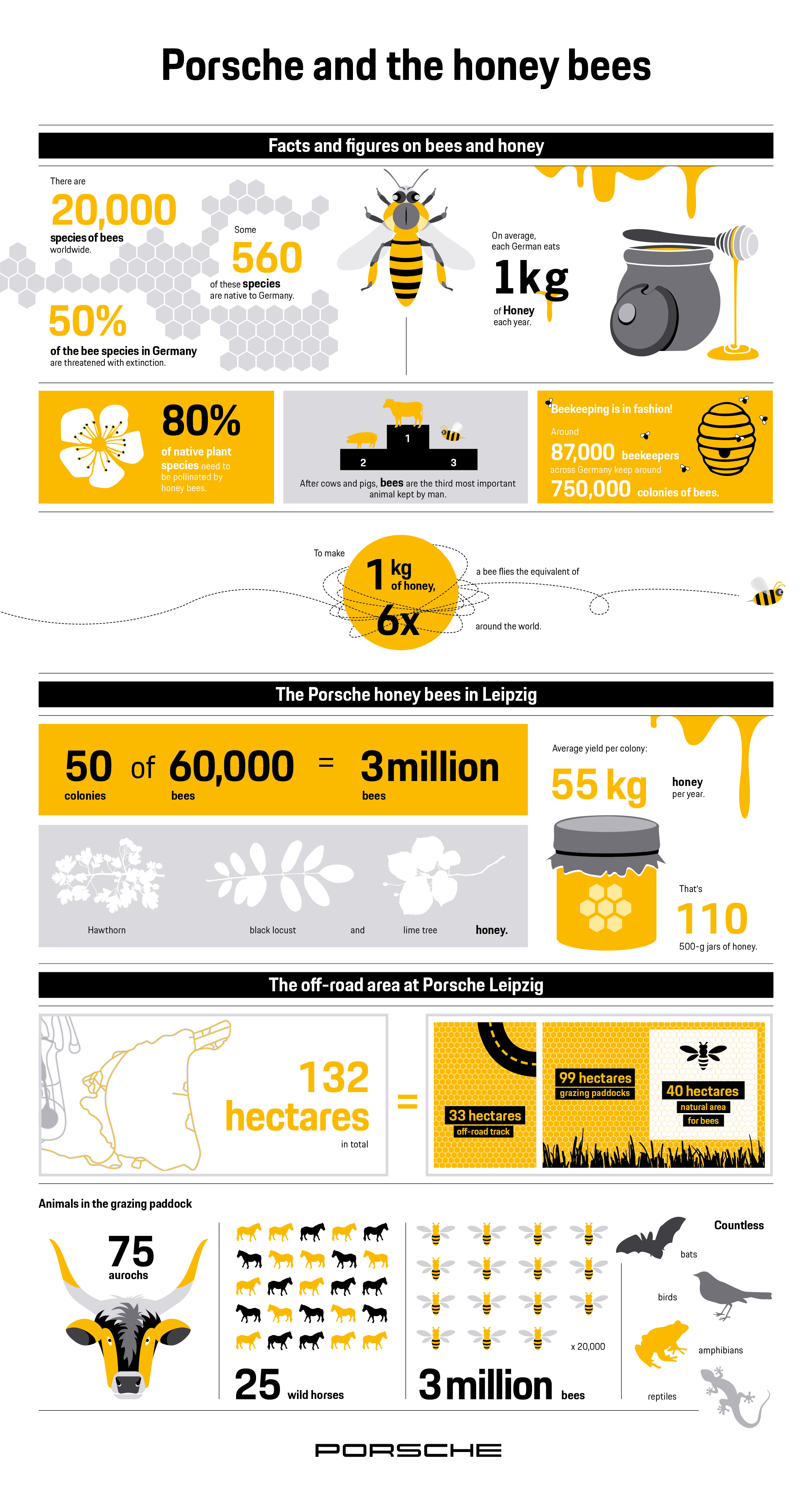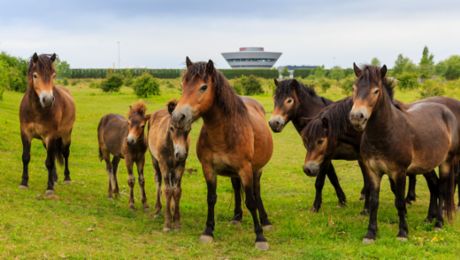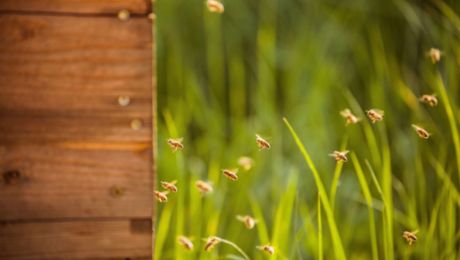In April of this year, Porsche doubled its number of bee colonies from 25 to 50, meaning three million honey bees now live at the Leipzig site. The spring blossom honey called Turbienchen® is now available to purchase again in the Porsche Leipzig customer centre shop.
In Germany, bee populations have been at risk for decades. Due to their importance for biodiversity, bees are protected by the German law for nature conservation (BNatSchG) and the German ordinance for species protection (BArtSchV). In particular, there is a lack of suitable habitats for these creatures. “The natural landscape at Porsche Leipzig offers the ideal conditions for our honey bees. There is a diverse range of blossom available all year round – from willow and wild fruit to hawthorn”, says Gerd Rupp, Chairman of the Executive Board at Porsche Leipzig Gmbh.
The honey bees also form part of the “Porsche Safari”. From July 9 to August 3, children aged 9 to 13 years can take part in a discovery tour set out within the sports car manufacturer’s off-road area. Children can explore a wealth of information about the residents along the four-kilometre “Porsche Safari” trail. Alongside the bees, the 132-hectare nature area is also home to many other wild animals, including various species of birds, amphibians, hares, deer, badgers and bats.





